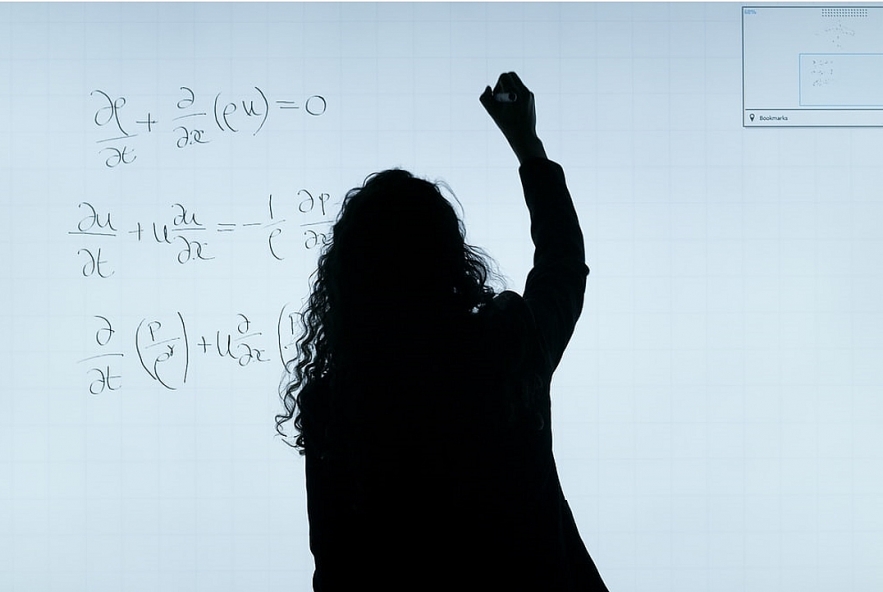Researcher Shows Ways to Learn Math in XXI Century
 |
| Best Ways to Learn Math at School |
There is a common misconception that some are simply not good at math. But this depends not only on your abilities but also on the strategies used for learning or the teacher and the class. Students who are forced to learn math, memorize theorems instead of logically learning them, or who are under speed testing will surely not develop a love for math.
This is why it is important to take care of all the cues in your environment to turn math from a subject you dislike to a one you enjoy. As long as you enjoy a subject, it will be easier to learn it. Math skills are important not only for your grades but for your future career too. It is present not only in nature, but in music, shopping, and many other domains as well. Researchers show ways to learn math in the XXI century. So, how to do it?
Use free educational math services
One of the best ways to learn math is to use additional educational resources. This is essential as it helps you learn new strategies and ways to handle numbers and theorems. Every teacher has their own teaching techniques, but there are many shortcuts or strategies you can use to solve the same math problems. And some students might find them way easier and more accessible than the classical ones. For example, any student might have to do calculus 1 practice problems to sediment the math knowledge they are acquiring. Free online service would come with the support and guidance many students need, so using these free resources can help you progress in your learning.
Numbers Flexibility
 |
| Math is not only about multiplying, subtracting, or adding numbers |
Even the most usual math problems have a few different ways of solving them. And as teachers insist on only one of them, some students might feel they dislike math. Every student is different and so does their perspective. And acquiring numbers flexibility is one of the ways to learn math in the XXI century. One of the easiest examples is that of multiplying numbers. Some students are taught to memorize answers, while others are taught to interact with numbers flexibly. And the latter approach is the right one.
For example, if you had to give answers to 7 x 9, you may have memorized the answer 63. But you can do it another way: 7 x 10 - 7. For 7 x 8 would be 7 x 10 - 2 x 7. Some students might still find the latter option more difficult, but it teaches you how to interact with numbers flexibly. Math is not only about multiplying, subtracting, or adding numbers. And having different perspectives on numbers and math operations will help you enjoy your time while learning math.
Math Anxiety
Math anxiety is common among students. Qualitative research has shown that when students are asked to do math problems under pressure, they cannot use their math knowledge appropriately. This is because the math concepts they have memorized become inaccessible when they are put under time pressure. This is something common that happens in all schools and universities.
It is therefore important to understand how your brain works when you learn math, say researchers. Many students think that if they cannot remember some concepts, they will not be good at math. But this is not true. It is only the anxiety provoked by time and academic pressure that prevents you from focusing on your test or remembering what you have learned. Your memory can get blocked when you experience a high level of stress, but this is not a sign that you can’t be good at math. So, it is important to understand how the brain works and to be aware of this. Losing trust in your abilities will prevent you from learning math, say researchers.
Final Thoughts
Learning math in the XXI century is essential. Math is crucial not only for your academic progress but your career and understanding of the world too, as math is present in every domain. So, knowing how to operate numbers and approach the problem from different perspectives is essential. Researchers show that there are different ways you should approach math learning.
Look for developing a flexibility of numbers, learn different strategies for solving the same problem, and use additional math services. Do not let time and academic pressure make you think that you can’t be good at math. Instead, become aware of them and learn to handle these moments, while trusting your math knowledge.
| Bio lines: Angela Boggs is a content writer and journalist. She is passionate about math, physics, and business. Angela’s goal is to help students approach these challenging topics with patience and optimism. |
 10 Best Free Online Learning Sites for Math, Data Science and Engineering 10 Best Free Online Learning Sites for Math, Data Science and Engineering If you want to learn math, science, or engineering but don't have time, let's discover these top 10 Free Online Learning Sites for Math, Data ... |
 How to teach your kids basic math skills How to teach your kids basic math skills Whether you're homeschooling or you just want to give your child a head start on math, it's easy to get your child to start thinking ... |























